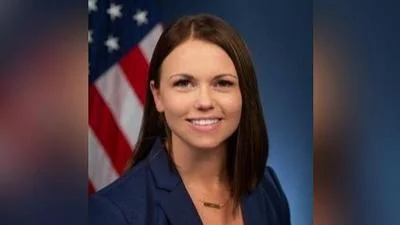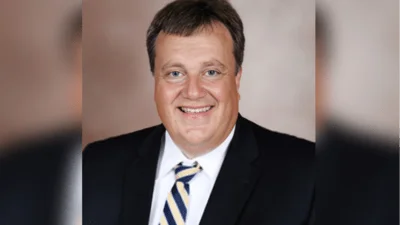The Congressional Record is a unique source of public documentation. It started in 1873, documenting nearly all the major and minor policies being discussed and debated.
“STATEMENTS ON INTRODUCED BILLS AND JOINT RESOLUTION” mentioning John Thune was published in the Senate section on pages S1571-S1572 on March 16.
Of the 100 senators in 117th Congress, 24 percent were women, and 76 percent were men, according to the Biographical Directory of the United States Congress.
Senators' salaries are historically higher than the median US income.
The publication is reproduced in full below:
STATEMENTS ON INTRODUCED BILLS AND JOINT RESOLUTION
By Mrs. FEINSTEIN (for herself and Mrs. Blackburn):
S. 752. A bill to amend the Internal Revenue Code of 1986 to provide for an election to expense certain qualified sound recording costs otherwise chargeable to capital account; to the Committee on Finance.
Mrs. FEINSTEIN. Mr. President, I rise to speak in support of the
``Help Independent Tracks Succeed (HITS) Act,'' which Senator Blackburn and I introduced today. Representatives Linda Sanchez (D-CA) and Ron Estes (R-KS) have introduced companion legislation in the House of Representatives.
Since the start of the COVID-19 pandemic, I have consistently heard from independent musicians and producers in California who have lost a large percentage of their incomes due to concerts, festivals, and other events being cancelled.
With many live performance stages and venues across the Nation closed for months as a result of the pandemic, independent musicians and music makers such as technicians and creators have suffered significant loss of income.
According to a survey by the Copyright Alliance, 88 percent of creators have lost income due to the coronavirus pandemic, which is more than double the national average. Approximately half of survey respondents had lost 90 percent or more of their income.
Our bill would provide some relief to music creators by allowing independent musicians, technicians, and music producers to deduct the cost of producing new musical recordings, putting them on a level playing field with other arts productions.
The U.S. Tax Code allows film, television, and theater productions to fully deduct production expenses in the year they are incurred.
However, recording artists are not given the same treatment, and are forced instead to amortize their production expenses over a number of years.
The HITS Act would allow qualified sound recording producers to deduct 100% of recording production expenses--up to $150,000--in the year they are incurred, rather than in later years.
Because this change would simply accelerate a tax deduction that already exists, the bill's expected cost would be minimal.
In addition, because the deduction would be capped at $150,000 per production, our legislation would benefit smaller, independent musicians and music producers rather than large companies.
The coronavirus pandemic has had a dramatic impact on music creators around the Nation. Our bill would help create parity between musical creators and other creative producers, stimulate the economy, and get music makers back to work.
I hope my colleagues will join me in support of this bill. Thank you, Mr. President, and I yield the floor.
______
By Mr. THUNE (for himself, Ms. Stabenow, Mr. Portman, Ms.
Baldwin, Mrs. Capito, and Mr. Cardin):
S. 773. A bill to enable certain hospitals that were participating in or applied for the drug discount program under section 340B of the Public Health Service Act prior to the COVID-19 public health emergency to temporarily maintain eligibility for such program, and for other purposes; to the Committee on Health, Education, Labor, and Pensions.
Mr. THUNE. Mr. President, I ask unanimous consent that the text of the bill be printed in the Record.
There being no objection, the text of the bill was ordered to be printed in the Record, as follows:
S. 773
Be it enacted by the Senate and House of Representatives of the United States of America in Congress assembled,
SECTION 1. ELIGIBILITY EXCEPTION FOR THE DRUG DISCOUNT
PROGRAM DUE TO THE COVID-19 PUBLIC HEALTH
EMERGENCY.
(a) In General.--Notwithstanding any other provision of law, a hospital described in subsection (b) that, for an applicable calendar quarter, otherwise meets the requirements for being a covered entity under subparagraph (L), (M), or
(O) of subsection (a)(4) of section 340B of the Public Health Service Act (42 U.S.C. 256b) and is in compliance with all other requirements of the program under such section, but that, for such calendar quarter, does not meet the applicable requirement for the disproportionate share adjustment percentage described in subsection (c), shall be deemed a covered entity under such respective subparagraph for such applicable calendar quarter.
(b) Hospitals.--A hospital described in this subsection is--
(1) an entity that, on the day before the first day of the COVID-19 public health emergency, was a covered entity described in subparagraph (L), (M), or (O) of subsection
(a)(4) of section 340B of the Public Health Service Act participating in the drug discount program under such section; or
(2) an entity that--
(A) prior to the COVID-19 public health emergency, submitted an application for participation in such program as a covered entity described in subparagraph (L), (M), or (O) of section 340B(a)(4) of the Public Health Service Act;
(B) prior to or during such emergency, was approved for such participation; and
(C) during such emergency, began participating in such program.
(c) Applicable Requirement for Disproportionate Share Adjustment Percentage.--The applicable requirement for the disproportionate share adjustment percentage described in this subsection is--
(1) in the case of a hospital described in subsection (a) that otherwise meets the requirements under subparagraph (L) or (M) of section 340B(a)(4) of the Public Health Service Act, the requirement under subparagraph (L)(ii) of such section; and
(2) in the case of a hospital described in subsection (a) that otherwise meets the requirements under subparagraph (O) of such section 340B(a)(4), the requirement with respect to the disproportionate share adjustment percentage described in such subparagraph (O).
(d) Definitions.--In this section:
(1) Applicable calendar quarter.--The term ``applicable calendar quarter'' means a calendar quarter for which eligibility for the drug discount program under section 340B of the Public Health Service Act (42 U.S.C. 256b) is based on a cost reporting period for which the COVID-19 public health emergency is in effect for all or part of such cost reporting period.
(2) Covered entity.--The term ``covered entity'' has the meaning given such term in section 340B(a)(4) of the Public Health Service Act (42 U.S.C. 256b(a)(4)).
(3) COVID-19 public health emergency.--The term ``COVID-19 public health emergency'' means the public health emergency declared by the Secretary of Health and Human Services under section 319 of the Public Health Service Act (42 U.S.C. 247d) on January 31, 2020, with respect to COVID-19.
____________________



 Alerts Sign-up
Alerts Sign-up